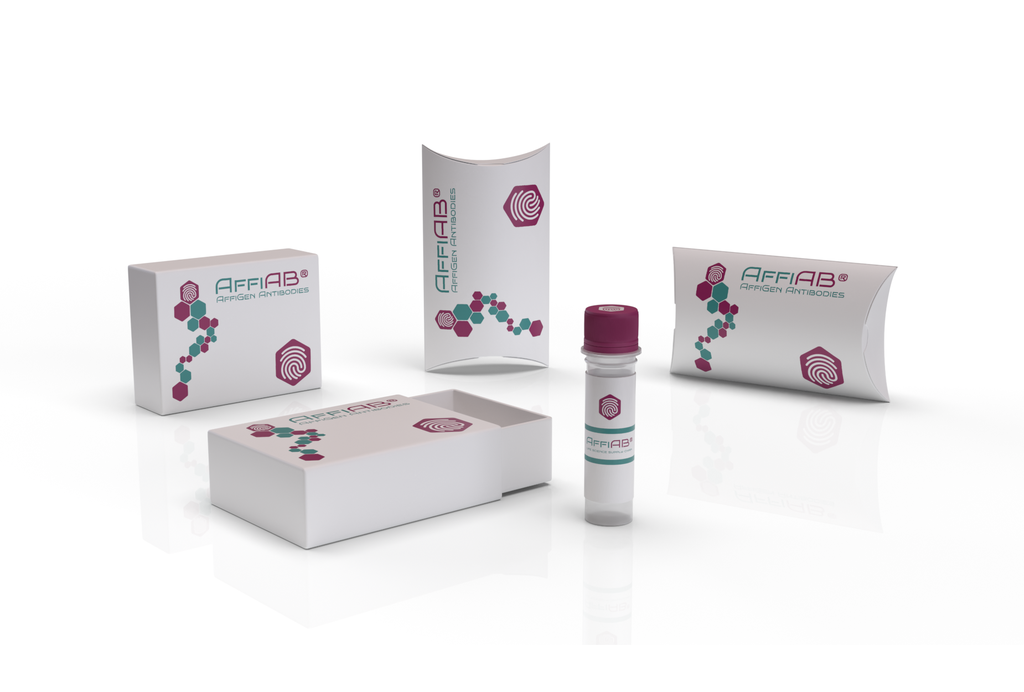AffiAB® Anti-SHP-1 (PTPN6) Antibody
The steady state of protein tyrosyl phosphorylation in cells is regulated by the opposing action of tyrosine kinases and protein tyrosine phosphatases (PTPs) . Several groups have independently identified a non-transmembrane PTP, designated SH-PTP1 (also known as PTP1C, HCP and SHP) , which is primarily expressed in hematopoietic cells and characterized by the presence of two SH2 domains N-terminal to the PTP domain. SH2 domains generally mediate the association of regulatory molecules with specific phosphotyrosine-containing sites on autophosphorylated receptors, thereby controlling the initial interaction of receptors with these substrates. A second and much more widely expressed PTP with SH2 domains, SH-PTP2 (also designated PTP1D and Syp) , has been identified. Strong sequence similarity between SH-PTP2 and the Drosophila gene corkscrew (CSW) and their similar patterns of expression suggest that SH-PTP2 is the human corkscrew homolog.
Antibody type
Rabbit polyclonal Antibody
Uniprot ID
SwissProt: P29350 Human; SwissProt: P29351 Mouse; SwissProt: P81718 Rat
Recombinant
NO
Conjugation
Non-conjugated
Host
Rabbit
Isotype
IgG
Clone
N/A
KO/KD
N/A
Species reactivity
Human, Mouse, Rat
Tested applications
WB, IF-Cell, IHC-P, FC
Predicted species reactivity
N/A
Immunogen
Recombinant protein within C-terminal Human SHP-1 aa 550-595 595.
Storage
Store at +4°C after thawing. Aliquot store at -20°Cor -80°C. Avoid repeated freeze / thaw cycles.
Form
Liquid
Storage buffer
1*PBS (pH7.4) , 0.2% BSA, 40% Glycerol. Preservative: 0.05% Sodium Azide.
Concentration
1 mg/mL.
Purity
Protein A affinity purified.
Signal pathway
Immunology & Inflammation, JAK-STAT signaling pathway
Recommended dilutions
WB: 1:1, 000-1:2, 000; IF-Cell: 1:50-1:200; IHC-P: 1:50-1:200; FC: 1:50-1:200
Molecular Weight
68 kDa
Subcellular location
Cytoplasm. Nucleus.
Positive control
Mouse spleen tissue lysate, A549, Hela, Jurkat, rat spinal cord tissue, human tonsil tissue, human spleen tissue.
